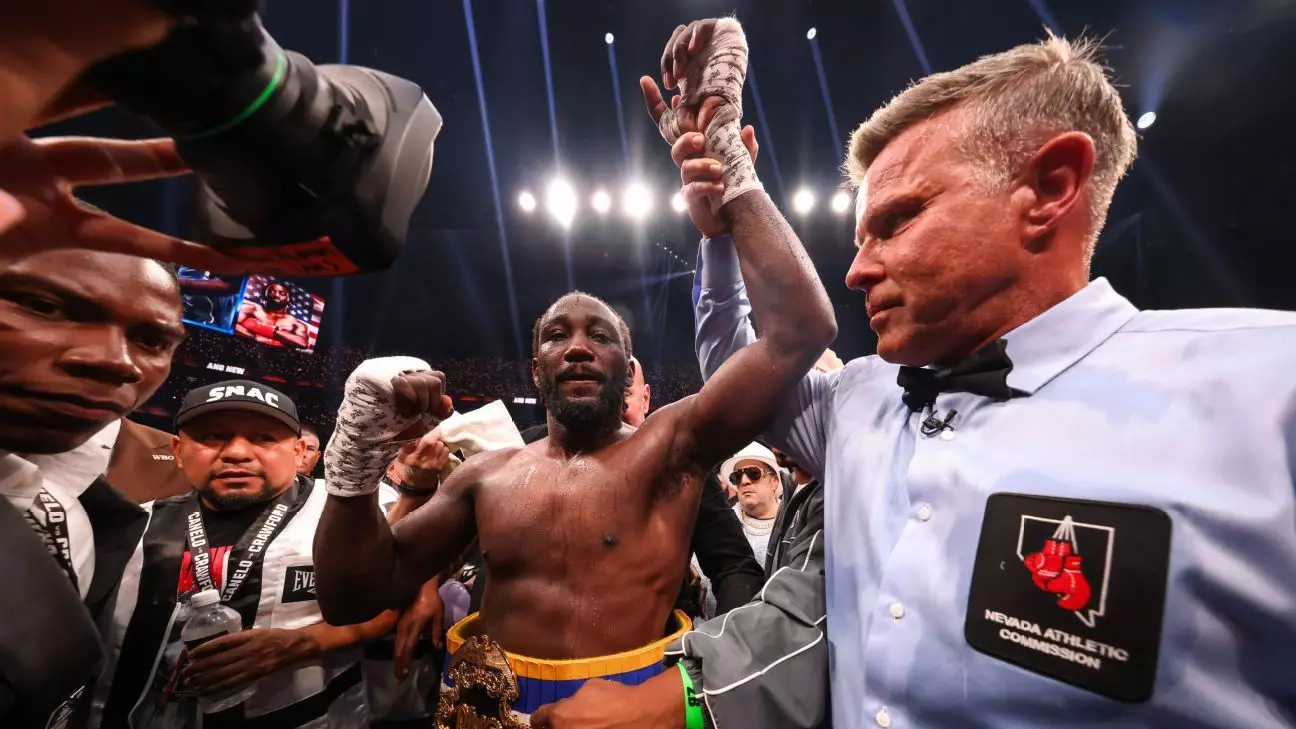In the high-stakes world of combat sports, the narrative often revolves around established champions defending their titles against formidable adversaries. Recently, however, a curious phenomenon has surfaced—athletes from one discipline casting ambitious glances into another. Ilia Topuria, the undefeated UFC lightweight champion, has boldly declared his desire to step into the boxing ring against Terence Crawford, a revered multi-division champion. This cross-promotional bravado is more than mere bravado; it’s a reflection of how fighters seek relevance beyond their own domain, sometimes at the expense of realism.
While Topuria’s confidence is evident, his claims reveal a deeper misunderstanding of what it takes to succeed in boxing. His brash statements about knocking out a seasoned boxer like Crawford—who has fought and beaten elite opponents—are emblematic of fighters who underestimate the complexity and nuance of boxing’s centuries-old craft. The allure of a fight with a superstar like Crawford feeds into the spectacle-driven nature of modern combat sports, but it also exposes a lack of appreciation for the skill, discipline, and strategic depth required in boxing.
The Reality of Cross-Disciplinary Success
There’s an undeniable appeal when an athlete switches disciplines or ventures into unfamiliar territory—fans are captivated by the novelty and the potential for an “upset.” Yet, history consistently demonstrates that such crossovers often favor the seasoned specialist. Floyd Mayweather’s bout with Conor McGregor stands as a rare exception, an anomaly that relied heavily on Mayweather’s unmatched boxing prowess and the spectacle’s commercial appeal. For every Mayweather-McGregor, numerous other cross-sport matchups have resulted in disappointment or outright mismatches.
Crawford’s dismissive attitude toward Topuria underscores the gap between genuine boxing expertise and MMA fighting. Unlike MMA, where fighters must be versatile across multiple ranges and disciplines, boxing demands refined footwork, precise punching, and strategic patience honed over years. A UFC champion, despite his athleticism and knockout power, may lack the finesse, defensive skills, or ring IQ that define boxing’s elite. The notion that Topuria can seamlessly translate his striking power into boxing’s narrowly defined but highly technical environment is overly simplistic and, frankly, naive.
The Pitfalls of Clout-Chasing
In the social media era, bravado and self-promotion often determine a fighter’s visibility and marketability. Topuria’s latest antics—calling Crawford “delusional” and “drunk,” then publicly challenging him—reveal how some athletes attempt to manufacture relevance through sensational tactics. These moves, while garnering attention, may ultimately diminish genuine sporting competition. Crawford rightfully labeled Topuria a “clout chaser,” highlighting how the line between legitimate aspiration and opportunism can sometimes blur.
This phenomenon isn’t new; fighters and athletes have long exploited social platforms to drum up interest in fight opportunities, whether realistic or not. The danger lies in creating a false narrative that undermines the sport’s integrity. Genuine champions like Crawford, who have dedicated their lives to perfecting their craft, should be wary of the distraction these side shows create. The thrill of a fight isn’t compromised by avoiding unnecessary mismatches; it’s compromised when fighters chase fame instead of legitimacy.
The Risks of Overreaching in the Fight Game
The allure of crossing into another sport is undeniable, but it comes with significant risks—physical, financial, and reputational. Crawford’s skepticism about the fight’s value reflects a rational understanding: for him, a mismatch isn’t worth risking his undefeated record and hard-earned reputation. Moreover, his skepticism about the financial gains underscores a harsh reality in boxing: not all fights are created equal in revenue potential.
Furthermore, a fighter’s legacy is often defined by the quality of opponents faced, not the novelty of the match. Crawford’s insistence on staying within his realm—competing against the best and avoiding superficial bouts—maintains his status as an elite. Conversely, fighters who chase fame through cross-sport antics risk being remembered as curiosities rather than as legitimate champions. The craft of boxing demands respect for its traditions and the fighters who dedicate years mastering its intricacies.


Leave a Reply